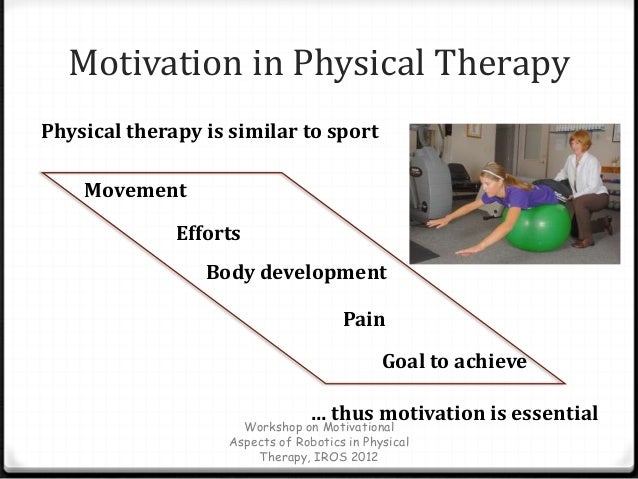

Maintaining motivation in long-term physiotherapy is a significant challenge for many patients. The process can be lengthy, demanding, and sometimes disheartening. This article explores the critical factors contributing to sustained motivation in long-term physiotherapy and provides practical strategies to overcome these hurdles. We will delve into various psychological aspects, external support systems, and goal-setting techniques. This article will outline a comprehensive framework for understanding and addressing this crucial aspect of physiotherapy success.
The Importance of Motivation in Physiotherapy
Understanding the Psychological Factors
Motivation plays a pivotal role in the success of any physiotherapy program. Patients who are highly motivated are more likely to adhere to their treatment plans, complete exercises diligently, and achieve their desired outcomes. This sustained effort is essential for optimal recovery and functional improvement. Without adequate motivation, patients may experience setbacks, frustration, and ultimately, abandonment of their treatment plan. This lack of persistence can hinder progress and prolong the recovery process.
Setting Realistic and Achievable Goals
The Power of SMART Goals
One crucial aspect of maintaining motivation in physiotherapy is the establishment of realistic and achievable goals. Vague or overly ambitious goals can lead to feelings of inadequacy and discouragement, thereby diminishing motivation. The SMART goal-setting framework provides a valuable tool for setting meaningful and attainable targets in physiotherapy. For example, instead of a broad goal like “recover full function”, a patient might set a SMART goal like “improve handgrip strength by 15% within 4 weeks.”
The Role of External Support Systems
Building a Strong Support Network
Motivation often relies on external support. Having a supportive network of family, friends, and healthcare professionals can significantly impact a patient’s ability to stay committed to their physiotherapy journey. This support system can provide encouragement, accountability, and emotional assistance during challenging periods. For example, joining a support group for patients undergoing similar treatments can provide valuable peer interaction and shared experiences. A strong support system can help patients navigate the emotional aspects of long-term treatment.
Addressing Potential Barriers
Recognizing and Overcoming Challenges
Many factors can hinder motivation in long-term physiotherapy. These barriers can range from physical discomfort to financial concerns or even feelings of isolation. Recognizing and proactively addressing these obstacles is crucial for maintaining motivation. For instance, a patient experiencing chronic pain may benefit from exploring alternative pain management strategies. By actively identifying and tackling potential barriers, patients can develop a more sustainable approach to physiotherapy.
Incorporating Positive Reinforcement
Motivating Through Positive Feedback
Positive reinforcement plays a pivotal role in maintaining motivation during physiotherapy. Acknowledging and rewarding progress, no matter how small, is crucial in fostering a sense of accomplishment and maintaining enthusiasm. For example, a physiotherapist might praise a patient for successfully completing a challenging exercise, emphasizing their dedication and perseverance.
Maintaining Motivation in the Face of Setbacks
Adapting to Challenges
Setbacks are inevitable in any long-term process, including physiotherapy. When setbacks occur, it’s essential to view them as learning opportunities rather than insurmountable obstacles. Analyze the setback. Identify the root cause, consider alternative strategies, and make necessary adjustments. Instead of dwelling on the setback, refocus on the ultimate goal, remember the initial motivations, and draw strength from the progress already made. By adapting to challenges and reframing setbacks, patients can navigate the inevitable obstacles and maintain a positive outlook.
Strategies for Managing Long-Term Physiotherapy
Establishing a Personalized Plan
A personalized physiotherapy plan can significantly improve motivation and adherence to the program. By actively engaging in the development of the plan, the patient gains a sense of ownership and control over their treatment. They’re more likely to feel a sense of responsibility and commitment, increasing the likelihood of achieving their goals.
The Importance of Patient-Physiotherapist Communication
Fostering Open Dialogue
Effective communication between patients and physiotherapists is paramount in long-term physiotherapy. Open dialogue fosters a supportive and collaborative environment where concerns can be addressed promptly and adjustments can be made to the treatment plan as needed. Encouraging patients to voice any challenges, questions, or concerns is crucial for tailoring the treatment to the individual’s specific needs and for addressing any emotional or psychological barriers.
The Connection Between Mental and Physical Well-being
Addressing Mental Health Factors
Physical and mental well-being are inextricably linked. Maintaining mental health is critical for successful physiotherapy. Stress, anxiety, and other mental health concerns can significantly impact motivation and adherence to treatment. Addressing these concerns through counseling, support groups, or other mental health resources can lead to more sustainable motivation and improved results in physiotherapy.
Frequently Asked Questions
What if I lose motivation during long-term physiotherapy?
It’s completely normal to experience fluctuations in motivation throughout the physiotherapy process. Instead of getting discouraged, acknowledge these feelings as a natural part of the journey. Identify the specific reasons for the decreased motivation. Is it a lack of progress, an unexpected setback, or perhaps feeling overwhelmed? Addressing the underlying cause can help in restoring motivation. Remember, even small steps forward are valuable, and celebrating these milestones can help maintain enthusiasm. If the loss of motivation persists, it’s advisable to consult your physiotherapist for further support and guidance.
In conclusion, maintaining motivation in long-term physiotherapy requires a multifaceted approach. Understanding the challenges, proactively addressing potential roadblocks, and fostering a supportive environment are crucial. By implementing the strategies discussed in this article, patients can increase their chances of achieving their physiotherapy goals and improve their overall well-being. For personalized guidance, consider scheduling a consultation with a qualified physiotherapist. They can assess your specific needs and tailor a plan to optimize your motivation and progress throughout your treatment journey.